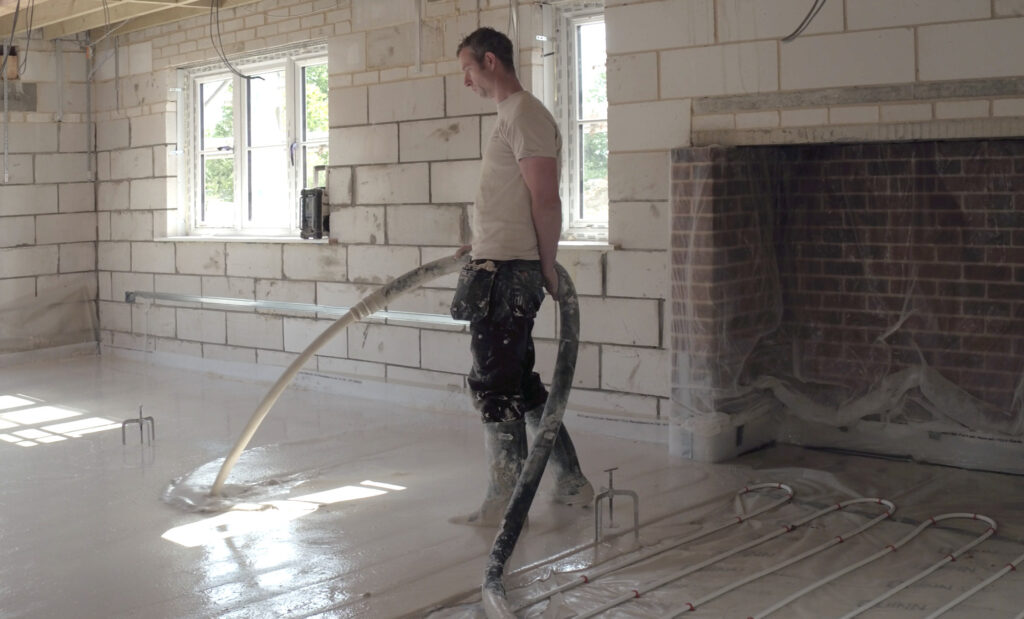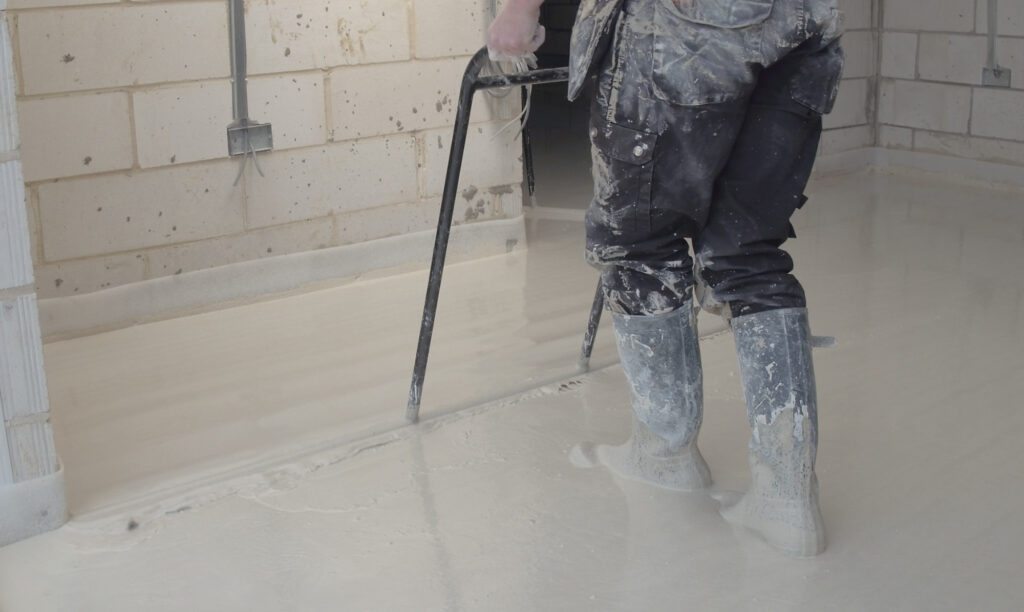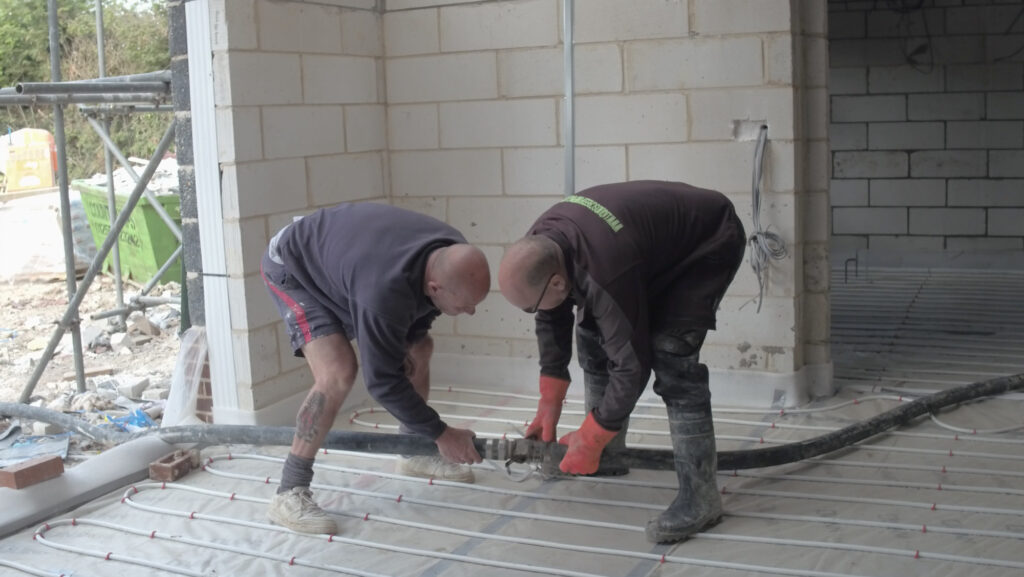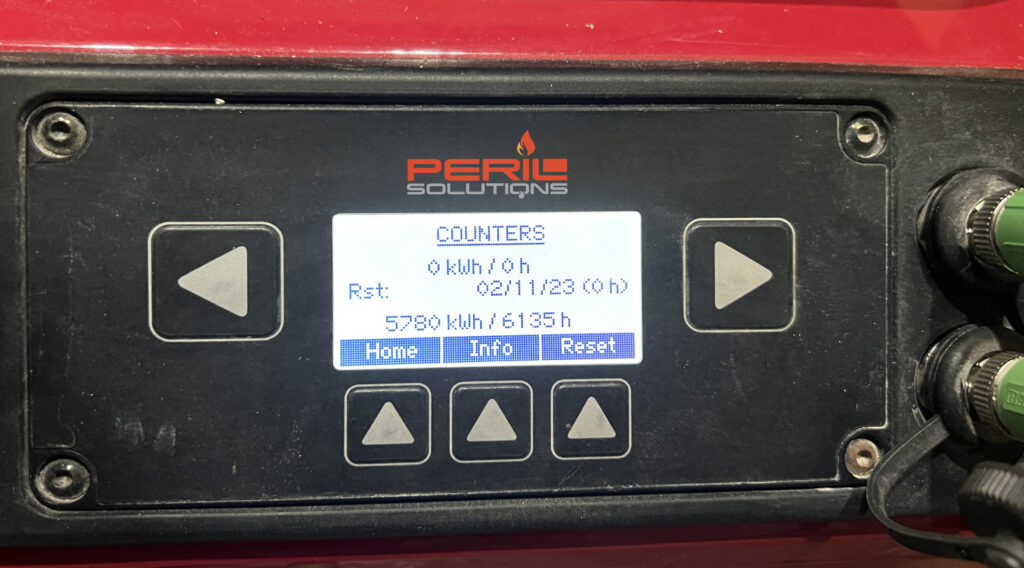Drying out new floors
Poured concrete floors are now a common feature of new housing and by their very nature require special treatment.
The base material requires a consistency similar to that of thick soup in order to enable the pouring process over some quite long distances, which in turn means a very high moisture content. Because of this, the drying out process requires requires careful handling to reconcile the requirements of speed and quality. If the process takes too long subsequent work will be held up, but cracking and shrinkage are ever present problems if the process is rushed.
Peril Solutions have extensive experience of drying out new floors and walls on new build properties. We know exactly how to manage the process to produce the necessary results as fast as possible.
Contact us for more information and a free estimate.
Liquid screed floors

Massive quantities of moisture need to be removed from a floor like this, but obviously plastering and other tasks cannot begin until the floor is dry enough to walk on.
Speeding up new build deliveries

Liquid screen floors typically contain considerable amounts of residual moisture, particularly if the build is taking place during the winter months, and natural drying is limited.
Peril Solutions has an effective system to deal with this, with our carefully designed and regulated process quickly and efficiently enabling final decorating to take place, without causing cracking or other damage.
Concrete pouring

All forms of concrete pouring rely upon wet mixes containing large amounts of moisture and large scale drying on any sizeable development requires efficient and controllable processes to minimise delays and keep the build moving.
The best results with low energy output

In order to get the best results and ensure minimum energy consumption, the drying process is continually monitored in real time and output adjustments can be made on site or remotely at the touch of a button.